Call for applications: Geospatial & data and information management, analyses, and tool development
We are seeking a contractor to provide the USDA Caribbean Climate Hub (CCH) with technical support to compile, document, develop and analyze relevant geospatial information that the CCH can integrate in their mission to develop and deliver information that will help farmers, ranchers, and forest managers reduce the risks of climate change and improve rural economies and food security.
APPLY BY MAY 7TH, 2018!
Skills required: The contractor will have specialized skills on managing and analyzing geospatial datasets, fluency in English and Spanish, excellent analytical and writing skills, and at least 10 years of experience developing and analyzing natural resource data for the region. The contractor will have experience working successfully in a team environment. The contractor will have at least 5 years’ experience with analyzing and reporting on landscape characterizations. The contractor will have a PhD or equivalent educational experience, a record of published work and other geospatial products, and familiarity with geospatial analysis tools and software.
The primary objectives of this work will be to:
- Compile new information and integrate existing information on the full range of local, federal and nongovernmental conservation incentives and mechanisms related to forestry and agriculture.
- Compile new information and integrate existing information on terrain, vegetation, soils, hydrology, climate, vulnerabilities, services, and other resource related landscape attributes.
- Integrate this information in planning tools in development by the CCH that can be used at both local levels (farm and forest planning) and larger scales (island wide or regional planning).
- Document new compilations and tools in technical and peer reviewed publications.
Primary tasks include:
- Geospatial support, analyses, and report writing for Climate Hub reforestation planning efforts. Geospatial support for the development of landscape soil ecological units and vegetation successional descriptions.
- Geospatial support for hurricane recovery efforts, including log salvage efforts.
- Story map development
- General technical support for all geospatial tolls and products produced by the Climate Hub.
Interested individuals should send a resume or CV and a letter of interest explaining their capacity by Monday, May 7th, 2018.
Responses to the call for applications can be submitted in either Spanish or English and in PDF or Word format to caribbeanclimatehub@gmail.com. For more information or inquiries please contact Dr. William Gould, Director of the USDA Caribbean Climate Hub, at wgould@fs.fed.us or by phone at 787-764-7790.
ABOUT US
In February 2014 the USDA established a Caribbean Climate Hub located in Río Piedras, Puerto Rico. The Caribbean Climate Hub is one of ten regional hubs nationwide. The network of Climate Hubs works with many USDA agencies to deliver science-based knowledge and practical information to farmers, ranchers, and forest landowners that will help them to adapt to climate change and weather variability. The Hubs coordinate with local and regional partners in federal and state agencies, universities, NGO’s, and the public. The CCH provides information and technical support for land managers to respond to drought, heat stress, floods, pests, fire and changes in growing season; regional assessments and forecasts for hazard and adaptation planning; and outreach and education for land managers on ways to mitigate risks and thrive despite change.
Principle Hub goals are:
- Science development and delivery, including the dissemination of assessments of climate-related risks and vulnerabilities of forestry and agriculture in the US Caribbean;
- Communications, including establishing effective communications about climate adaptation and mitigation that include a web presence, agricultural database, videos and factsheets;
- Stakeholder Engagement, including assessments and analyses to better understand the stakeholder network, communication bottlenecks, and to effectively engage stakeholders; and
- Tool Development, including geospatial planning tools, story maps, and educational videos.
USDA is an equal opportunity providers, employers, and lenders.
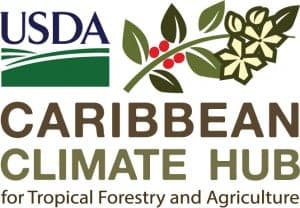
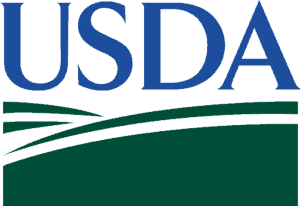
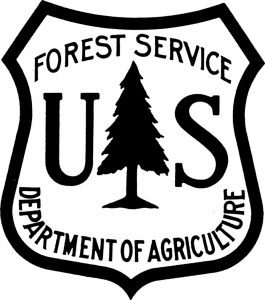
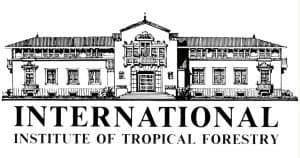
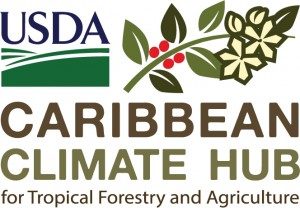
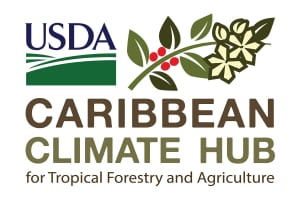

 Adapta
Adapta
Síguenos!